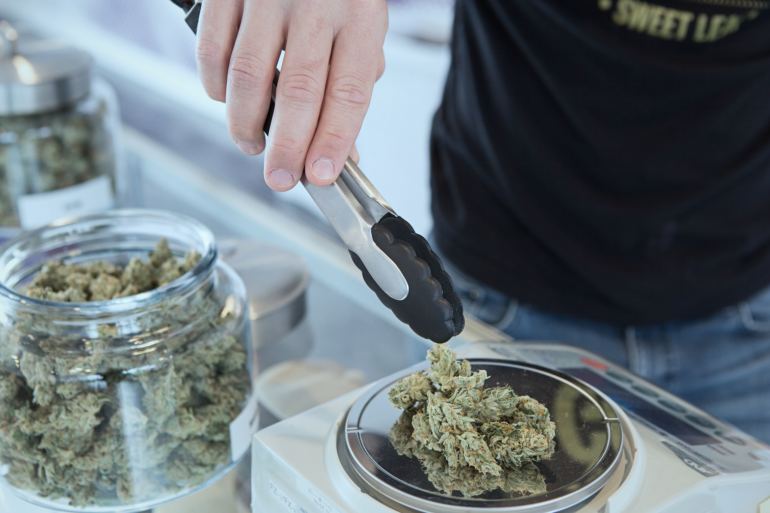Legal Update
Nov 7, 2019
Marijuana Breathalyzers: Could New Testing Methods Help Employers And Employees?
Seyfarth Synopsis: Employers are grappling with the wave of marijuana laws sweeping the nation, some of which provide very employee-friendly protections. While no state requires an employer to tolerate employees’ use of marijuana or impairment while they are working, present drug testing methodologies cannot determine whether an employee used marijuana two hours or two weeks ago. That might be changing as companies reportedly are closer to developing technology that will be able to detect recent use, a welcome development for both employers and employees.
Here Are The problems:
Marijuana causes impairment to people who ingest it. Actually, the psychoactive component of marijuana, THC (tetrahydrocannabinol), is what really causes impairment. It weakens judgment and motor function. If an employee goes to work high, that creates serious safety concerns. It also creates legitimate concerns regarding employee judgement, behavior, work product, and efficiency. Science has confirmed that these concerns stemming from marijuana use are legitimate.
Another problem is that marijuana use is illegal under long-standing federal law, the Controlled Substances Act. To be clear, it is still illegal to use, possess, or distribute marijuana. Many employers take issue with the idea of being required to tolerate their employees’ conduct that is plainly criminal. Understandably, employers may not like the message that condoning marijuana use sends to their clients, target markets, and communities.
Opinions as to whether marijuana should be legal vary. But most would agree that no employer should have to tolerate employees working while high from use of marijuana—whether the use is legal or illegal. This idea is similar to the generally accepted idea that employers need not tolerate employees working while intoxicated from alcohol consumption, which is legal. Indeed, a number of state marijuana laws include provisions reflecting that employers need not accommodate or tolerate marijuana use or impairment in the workplace or while working.
This is the point at which perhaps the most practical problem lies for employers and employees. How can an employer know if an employee is impaired or high from ingestion of THC?
An employer with “reasonable suspicion” that an employee is working while intoxicated from alcohol can rely on science to establish impairment. Blood alcohol tests have generally been accepted to measure impairment from alcohol consumption. Unfortunately, there has been no scientifically-accepted drug test to show impairment from marijuana use. While most tests show the presence of THC in a person’s system, reflecting use in recent days or weeks before the test, they do not show impairment at or near the time of the test.
New And Improved Testing Methods Could Be A Solution:
Science may be catching up with the times. A number of media outlets have reported that certain companies are developing tests that use breathalyzers to evaluate how recently a person used marijuana. According to reports, these tests are being designed to show if a person used marijuana within the 2-3 hours before the test, which has been reported to be within the peak period of impairment after ingestion of THC. It is unclear if and when these devices will be available for employment-related testing or the costs associated with such tests.
That said, if new marijuana testing devices and methodologies become generally available, and they are validated as a reliable means by which to determine impairment or recent marijuana use, employers may have a much needed solution to their legal and practical dilemmas. In fact, these marijuana tests could bring employees and applicants peace of mind too. An employee who uses marijuana at home on Sunday evening, in accordance with his doctor’s instructions, may be able to rest easy knowing that, if sent by his employer for a drug test on Monday, the test results will show that he was not impaired while working.
The near term development and reliability of these testing devices is currently unknown and employers should not expect them to be a panacea to their marijuana woes. Amongst other issues, the devices may not be permitted by state law. Where their use is permissible, we predict their validity and reliability will be challenged by experts and their widespread use by certified laboratories for workplace drug testing programs is not likely to occur any time soon.

